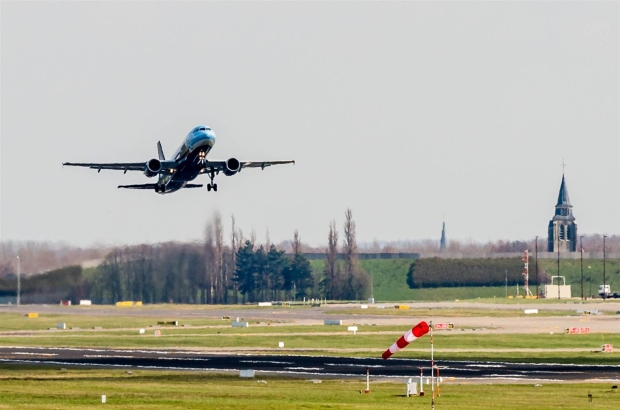- Daily & Weekly newsletters
- Buy & download The Bulletin
- Comment on our articles
Belgium to tax noisiest and most polluting aircraft
Belgium will begin levying extra taxes against older, louder aircraft in an effort to cut down on noise pollution and harmful emissions.
The country’s mobility minister Georges Gilkinet reached an agreement within government on a new system of taxes and fees that airlines pay to Skeyes, the air navigation and traffic controller for Belgian airspace.
This new system includes criteria linked to air quality and greenhouse gas emissions, a criterion for flights of less than 500km, and revised standards for noise nuisance.
This last one has been a contentious issue at multiple airports in Belgium for quite some time, with residents filing complaints that have been the subject of judicial proceedings for years.
Prior to this reform, each aircraft taking off from or landing at Brussels Airport paid a fee based on the noise generated during that landing or takeoff. Now, these additional factors will be considered in the fee calculation.
The new noise criterion aims to tax the loudest planes – usually the oldest ones – and discourage night flights that would wake sleeping residents who live near the airport.
Charges are also being increased for aircraft that do not already have a noise rating certificate, which is generally private or business planes.
Private jets represent 3,000 flights per year, or 12% of all Belgian air traffic.
“Until now, private jets have benefited from very favourable tariff conditions and charges,” Gilkinet said. “But they pollute even more than others – up to 50 times more.”
The new system is scheduled to come into force on 1 April 2023, which coincides with the start of the summer season for airlines.
Aside from private planes, the measure is mainly expected to affect those airlines with an older fleet, which can expect to pay surcharges in order to use the airport.
The price of the charge will vary on average from -25% depending on the performance of the aircraft and the time of day to +40%, minister Gilkinet said.
Airlines that fly in the morning, in the evening or at night and also for distances under 500km will be the ones paying upwards of 40% more, especially if they fly with an outdated and therefore more polluting and louder fleet.
For more modern aircraft flying longer distances during the day, the charge will be up to 25% cheaper.
Gilkinet called the new standards an "important first step", but said he wants to do more in the coming months “to really make a difference”.
Already last week, the Belgian government decided to release an estimated €2.7 million for Skeyes to conduct tests in pursuit of quieter, more ecological flight procedures.
“What I want to avoid is that Brussels Airport becomes the noise bin of Europe and that it remains, instead, among the best European airports,” Gilkinet said.
“There is no reason why noisy aircraft, which are refused elsewhere, should continue to come to Brussels and disturb the sleep of millions of Belgians.”
But Brussels Airport chief executive Pete Gerber expressed concern that the new measure would cause the airport to lose its competitive edge.
"If these plans are implemented, the airport will lose all competitiveness and become a small provincial airport," Gerber said. "They pose a serious threat to Belgium."



















